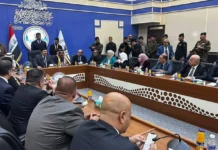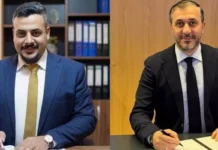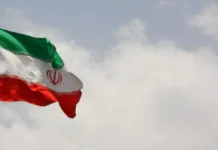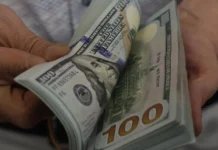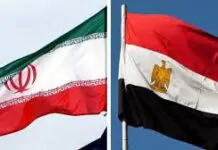Tishwash: Financial inclusion and banking restructuring
The current government ‘s interest in the banking sector has become striking to the point that it can be said that the government is actually undertaking the “financial inclusion program, whose founders aim to deliver services to all regions of the country and include all societal and age groups with these services with the aim of encouraging all citizens to open bank accounts, and then withdraw the cash mass hoarded by the public, which the Central Bank estimates at about 70 percent of the issued cash, and circulate it in the banking arena activities, with the aim of raising credit rates and contributing to creating real development.
On this basis, the Prime Minister’s Office’s statement came in this regard recently, which referred to some of the challenges facing the efforts to reform the financial and banking system, as one of the priorities of the government program, while the statement identified a number of steps with the aim of confronting these challenges and ensuring the strengthening of confidence in the financial and banking sectors, facilitating the process of economic development, and raising indicators of financial inclusion.
However, the clear intersection between the government’s direction and the banking restructuring program indicates a number of observations that are directly related to these steps, such as the contradiction between what was stated in the content of these government steps, and the banks’ procedures regarding restructuring, as some government banks have taken steps The issue of restructuring, which was apparently limited to the merger of large numbers of branches of operating government banks, included branches on the outskirts of governorate centers and in the middle of them, which undermined the service area in which these banks operate.
This completely intersects with the financial inclusion program, one of the tools of which the statement specified is “providing banking services to different segments of society, including districts and sub-districts in villages and rural areas.”
The steps mentioned in the statement, which are in the process of intensifying efforts, did not indicate the issue of the conditions previously set regarding raising the capital rates of banks to about 450 billion dinars by the end of December 2024, which obligated all private and government banks in this regard, otherwise these banks will be merged or liquidated, if we know that some government banks whose many branches have been merged still have a large number of branches, and these branches still provide their daily services to large numbers of the public, while they are exposed to merger or liquidation
Even some administrations are unable to make some decisions related to developing services, because they realize that the fate of their banks will end in merger or liquidation, and this is what makes the intersection clear in the government’s direction regarding developing the performance of banks and expanding the scope of services with the restructuring program implemented by the relevant authorities. link
************
Tishwash: IMF praises positive developments in Iraq in financial and banking aspects
The International Monetary Fund praised, on Wednesday, the positive developments witnessed by Iraq in the financial and banking aspects .
A statement by the Presidency of the Republic received by “Mil” stated that “President of the Republic, Abdul Latif Rashid, received today, Wednesday, at his residence in the Azerbaijani capital, Baku, the Director of the International Monetary Fund, Kristalina Georgieva, as part of His Excellency’s participation in the United Nations Climate Conference (COP29).”
He added, “During the meeting, the cooperation relations between Iraq and the International Monetary Fund and ways to enhance them in the context of supporting the development path in Iraq were reviewed. During the meeting, His Excellency the President of the Republic stressed Iraq’s endeavor to implement integrated programs and plans to stimulate the economy and support the financial and banking reform process .”
Rashid thanked the International Monetary Fund for what it did to support Iraq’s budget during the crises it faced and overcame, stressing the “importance of completing coordination and joint cooperation in order to continue efforts to combat corruption, support investment, and develop the private sector, leading to building a strong, cohesive, and recovering economy .”
For her part, Kristalina explained that “the primary mission of the International Monetary Fund is to provide support to countries’ budgets during crises, and this is what the Fund did with Iraq during a difficult period, but it overcame it,” praising “the positive developments that Iraq witnessed in the financial and banking aspects and in the field of stimulating the investment environment, which contributed to a decrease in the inflation rate, growth in the non-oil GDP, and implementation of controls that contribute to combating money laundering.” link
*************
TNT: Among them is the population census.. Revealing the details of Al-Sudani’s visit to Kurdistan
Political analyst Ali Al-Baydar confirmed, today, Wednesday (November 13, 2024), that Prime Minister Mohammed Shia Al-Sudani’s visit to Kurdistan includes 5 files.
Al-Baydar said in an interview with Baghdad Today that “Al-Sudani’s visit to Kurdistan aims to mediate between the Kurdish parties, with the aim of forming the next Kurdistan government, in addition to the file of the general population census, and reassuring the Kurds about the concerns they have.”
He added, “The other file is the Turkish efforts to revive peace with the Kurdistan Workers’ Party, the Sinjar issue, and the implementation of the agreement with Iran regarding the presence of Iranian opposition parties within the borders of the region.”
Al-Baydar pointed out that “the Kurds are a key player and an important partner in the political process, and everyone is trying to win their favor, and Al-Sudani deals as a statesman, and comprehensively with the issues of the homeland, with the region or even the files within Kurdistan.”
Prime Minister Mohammed Shia al-Sudani arrived in the Kurdistan Region of Iraq today, Wednesday (November 13, 2024), on a visit that includes the cities of Erbil and Sulaymaniyah.
The visit comes within the framework of the federal government’s efforts to enhance cooperation with the Kurdistan Regional Government, and find solutions to issues affecting the relationship between the region and the central government. link

